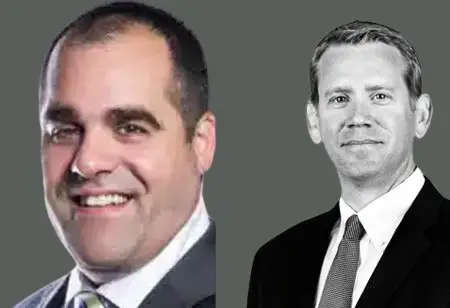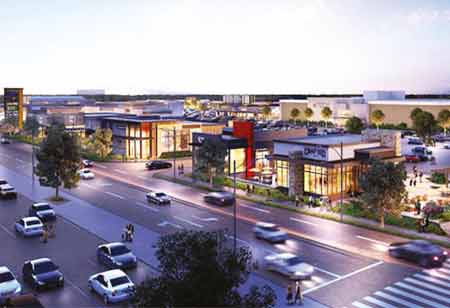Thank you for Subscribing to Construction Business Review Weekly Brief

Driving Innovation and Sustainability
With over 25 years of experience in architecture, design, and construction, he is recognized for his expertise in hospitality design and technical services across diverse brands and segments. His core strengths include standards development, budgeting, construction management, contract negotiations, value engineering, and comprehensive project planning. He has a proven track record of optimizing processes, brand development, and cost control. Committed to delivering tailored, efficient solutions, he blends his deep understanding of hospitality operations with business innovation. His focus on sustainable approaches empowers clients to achieve their goals and exceed guest expectations. This is a tailored approach that fits the right solution with the specific property location, type of travel experience, overall project budget, local operational expenses, brand design requirements and current technology. The best solutions are those that either enhance the design aesthetic or happen behind the scenes.
A Journey of Innovation and Leadership in Hospitality
William’s career began in 1995 with Hilton, where he played a pivotal role in launching the Hilton Garden Inn brand and developing its initial 20-25 properties. Following Hilton’s merger with Promus Hotels, he founded a project management firm that oversaw 20-30 hotel projects nationwide.
Hyatt later sought his expertise to transform AmeriSuites into Hyatt Place, where he managed 100 property conversions in a year and designed a new prototype. He also led the creation of Hyatt House, directing 22 conversions and new builds. After Blackstone acquired Hilton, he returned as VP of Global Shared Technical Services, refining global standards.
During the pandemic, William launched Virage Creative to support new brand development and assisted owners and companies with brand design guidelines & prototypical solutions that build off his years of experience. As VP of Design and Construction at Auro Hotels, he oversees 36 hotel projects, combining strategic leadership with a commitment to hospitality excellence.
Leading Collaborative Design and Architecture at Auro Hotels
William ensures cohesive design strategies at Auro Hotels and fosters strong partnerships with trusted design firms. He focuses on building solid relationships with five or six interior design firms that align with Auro’s vision and brand standards, especially for Marriott, Hilton & Hyatt property projects. Collaboration with vetted firms that understand Auro’s aesthetic ensures consistency and quality.
William works closely with established architectural partners for projects involving structural changes, facilitating seamless workflows. This collaborative approach unites like-minded experts, driving projects from concept to completion with precision and shared purpose.
Challenges and Exciting Trends in Structural Engineering
Modernizing existing hotel structures poses significant challenges, especially with older prototypes with a more traditional aesthetic.
The task lies in blending contemporary design elements seamlessly, making them feel natural and timeless. This challenge fuels innovative solutions that integrate modern design with existing frameworks.
William has observed a significant shift toward contemporary designs across major hotel brands, emphasizing sleek, modern architecture that meets guest expectations and aligns with brand identity. This evolution involves more than superficial updates; it harnesses the creative use of materials, lighting, and technology to craft modern yet welcoming spaces.
He is particularly passionate about sustainable design. Integrating energy-efficient systems, adaptive reuse of materials, and intelligent building technologies is essential. These practices help create responsible, visually appealing spaces that support environmental stewardship.
The Future of Structural Engineering: Technological Shifts and Industry Growth
Technological advancements continue to reshape structural engineering. Digital platforms like Hilton’s Project Hub and Marriott’s Lobo enhance collaboration, transparency, and project efficiency. These systems accelerate project timelines by streamlining approval processes.
"I’m particularly excited about the growing emphasis on sustainable design and engineering solutions. Integrating eco-friendly practices, like energy-efficient systems, adaptive reuse of materials, and smart building technologies, isn’t just a trend—it’s a necessity"
The COVID-19 pandemic furthered the adoption of remote collaboration tools like Microsoft Teams and Zoom, enabling real-time design reviews and swift feedback. Future improvements in project management, along with augmented and virtual reality for immersive visualization, will enhance efficiency, reduce revisions, and speed up timelines.
Expert Advice for Aspiring Professionals in Architecture & Design
Success in Architecture & Design relies on meticulous preparation. William stresses the importance of thoroughly reviewing design plans and specifications to avoid costly issues. Clear, precise documentation allows contractors to plan effectively, minimizing unexpected changes that disrupt timelines and budgets. Therefore, it is highly recommended to spend extra time on the front end of any project to ensure all aspects of the project are clearly defined and cross references are complete and thorough.
Strong contractor relationships are valuable, but precise and reliable information is crucial for project success. Addressing challenges like extended lead times for materials such as carpets, HVAC systems, and electrical transformers require strategic planning. Not to mention timing for local design review boards, authorities and permitting must be a high consideration. This foresight helps navigate the industry’s evolving landscape with confidence and adaptability.








